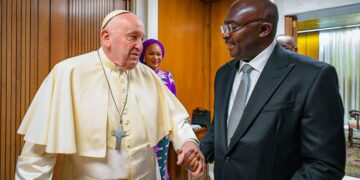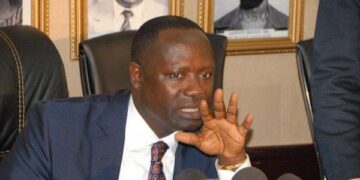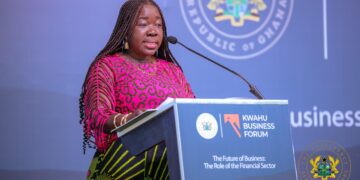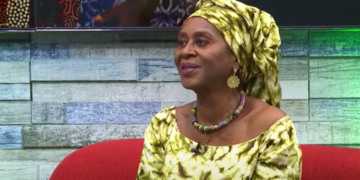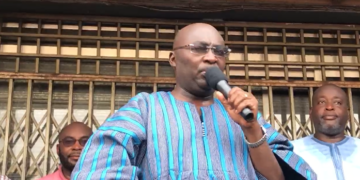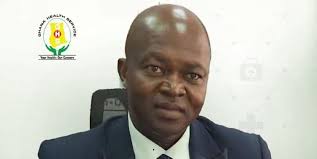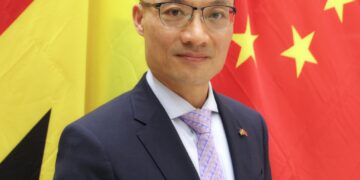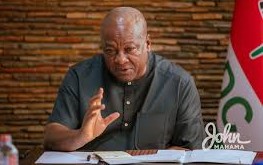The Africa Prosperity Network (APN), a private not-for-profit organisation with a vision to promote Africa beyond aid, has inaugurated an eight-member Advisory Council to drive regional economic integration and prosperity.
The high-profile Council comprises esteemed global African icons, industry leaders, and eminent statesmen and women.
It is chaired by Mr Gabby Asare Otchere-Darko, the Executive Chairman of APN, an astute transactional barrister and a political risk analyst.
A release issued by the Network in Accra on Friday, copied to the Ghana News Agency, gave the members as Nkosazana Clarice Dlamini Zuma, a former Home Affairs Minister of South Africa, Ambassador Dr Amina Mohamed, a former Kenyan Cabinet Secretary of Foreign Affairs, and Mr Eugene Owusu, a Special Advisor to Ghana’s President on the Sustainable Development Goals.
The others are Dr Amany Asfour, Founder and President of the Egyptian Businesswomen Association, and President of the Africa Business Council, Mrs Patricia Poku Diaby, an Industrialist and Chief Executive Officer of Plot Enterprise, a multi-national commodities company, and Cesar Augusto Mba Abogo, an economist and former Finance Minister of Equatorial Guinea, as well as Country Manager of the African Development Bank (AfDB) for Mozambique.
The rest are Christal Jackson, Chairwoman of the Africa-America Institute (IAA), and Mr Joshua Siaw, a renowned international transactional barrister and Partner of Global Law Firm, White & Case LLP, and Director of the firm’s Africa Practices.
The Council’s primary goal is to steer the APN towards fostering economic integration and prosperity in Africa.
Five of the Council’s members are accomplished women, who bring on board their diverse wealth of experiences and a shared passion for Africa’s growth and development.
Mr Otchere-Darko, in his inaugural address, expressed profound gratitude to the members for their willingness to support the APN to achieve its vital role of accelerating Africa’s progress and growth.
The APN, in partnership with the African Continental Free Trade Area (AfCFTA) Secretariat, is set to host the annual Africa Prosperity Dialogues from January 25 – 27, 2024, at Ghana’s prestigious Peduase Lodge in the Eastern Region.
Other key partners are the UNDP Africa, the Africa Business Council, Africa Development Bank, Afreximbank, United Nations Economic Commission for Africa, Africa America Institute, and African Union’s Peer Review Mechanism.
The event would spotlight crucial discussions on economic transformation, emphasising intra-African commerce, youth employment, and overall prosperity for the continent’s 1.4 billion population.
Njack Kane, the Acting Chief Executive Officer of APN, said the event’s focus areas included Agriculture and Food Sovereignty, Natural Resources and Value Addition, Manufacturing, and Intra-African Trade Enablers.
The dialogues aimed to showcase success stories from across the continent that promote the transformation of agricultural and raw material resources.
Dr Amany Asfour welcomed the strategic support from the AU’s Africa Business Council, aiming to drive continental industrialisation.
Dr Amina Mohamed, on her part, emphasised the importance of the “prosperity” mindset in unlocking Africa’s vast potential, while Mrs Patricia Poku-Diaby highlighted the significance of APN in fostering closer collaboration among the business leaders.
Mr Siaw pledged his commitment to attracting investments to Africa, leveraging the continent’s position as the largest single market globally under the auspices of AfCFTA.
The Africa Prosperity Dialogues is an annual conference where its highest political and business decision-makers meet to brainstorm on the AfCFTA objectives from ambition to action.
The Advisory Council members attended the maiden meeting via video link.
The Africa Prosperity Network is a not-for-profit organisation with a vision to promoting Africa beyond aid, and creating the platforms for holding critical dialogues that would reshape the thinking of Africa’s diverse leaders.
It aims to guide them into taking bold steps in the areas of trade, economic structures, political conduct, culture, and build partnerships to recalibrate the principles and policies required to ensure better standards of living for Africans.
GNA









